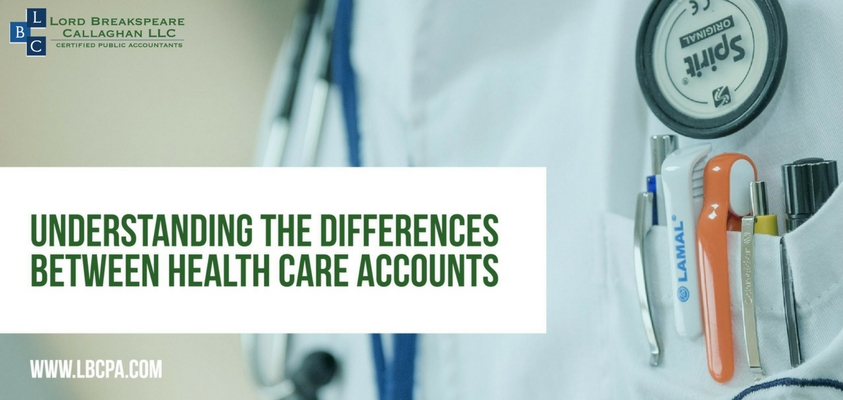LBCPA News 
Click here to go back
UNDERSTANDING THE DIFFERENCES BETWEEN HEALTH CARE ACCOUNTS

Health care costs continue to be in the news and on everyone’s mind. As a result, tax-friendly ways to pay for these expenses are very much in play for many people. The three primary players, so to speak, are Health Savings Accounts (HSAs), Flexible Spending Arrangements (FSAs) and Health Reimbursement Arrangements (HRAs).
All provide opportunities for tax-advantaged funding of health care expenses. But what’s the difference between these three types of accounts? Here’s an overview of each one:
HSAs. If you’re covered by a qualified high-deductible health plan (HDHP), you can contribute pretax income to an employer-sponsored HSA — or make deductible contributions to an HSA you set up yourself — up to $3,400 for self-only coverage and $6,750 for family coverage for 2017. Plus, if you’re age 55 or older, you may contribute an additional $1,000.
You own the account, which can bear interest or be invested, growing tax-deferred similar to an IRA. Withdrawals for qualified medical expenses are tax-free, and you can carry over a balance from year to year.
FSAs. Regardless of whether you have an HDHP, you can redirect pretax income to an employer-sponsored FSA up to an employer-determined limit — not to exceed $2,600 in 2017. The plan pays or reimburses you for qualified medical expenses.
What you don’t use by the plan year’s end, you generally lose — though your plan might allow you to roll over up to $500 to the next year. Or it might give you a 2½-month grace period to incur expenses to use up the previous year’s contribution. If you have an HSA, your FSA is limited to funding certain “permitted” expenses.
HRAs. An HRA is an employer-sponsored arrangement that reimburses you for medical expenses. Unlike an HSA, no HDHP is required. Unlike an FSA, any unused portion typically can be carried forward to the next year. And there’s no government-set limit on HRA contributions. But only your employer can contribute to an HRA; employees aren’t allowed to contribute.
Please bear in mind that these plans could be affected by health care or tax legislation. Contact our firm for the latest information, as well as to discuss these and other ways to save taxes in relation to your health care expenses.
If you have any questions regarding accounting, domestic taxation, international taxation, IRS representation, U.S. tax implications of Real Estate transactions or financial statements, please give us a call at 305-274-5811.
Source: Thomson Reuters






